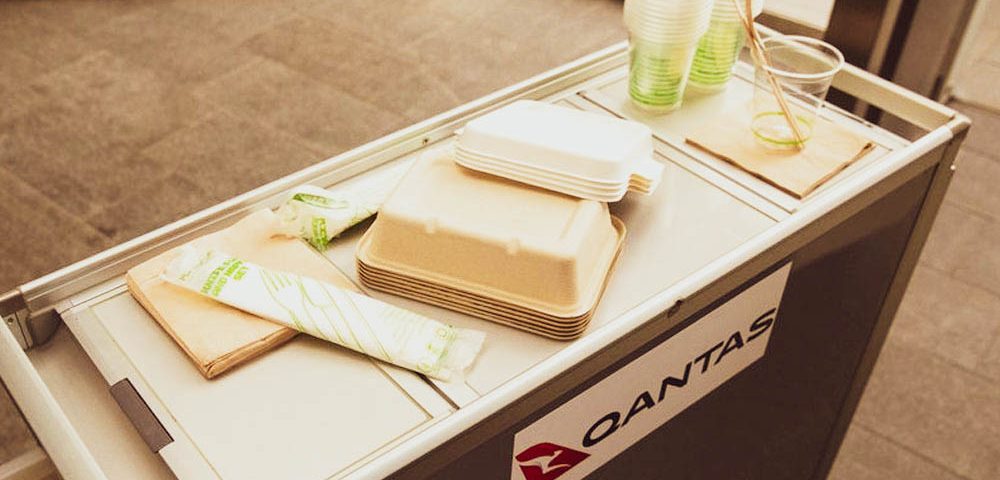
The Perks of Booking through a Travel Consultant
February 6, 2020Qantas’ first green flight, producing no landfill waste, took off this month between Sydney and Adelaide, was a world first.
This flight is part of Qantas’ plan to eliminate 75% of all waste produced on flights even though airlines cannot get rid of all trash; this is a step in the right direction. Legal requirements dictate airlines to get rid of certain waste, like quarantined food, permanently meaning they will not be able to eliminate all of the waste yet.
According to the Qantas website, these are some of the changes they have made for this flight:
“About 1000 single-use plastic items were substituted with sustainable alternatives or removed altogether from the flight, including individually-packaged servings of milk and Vegemite.
Alternative products used during the flight include meal containers made from sugar cane and cutlery made from crop starch, all of which is fully compostable.
At the end of the meal service, the Qantas cabin crew collected the items left over for reuse, recycling or composting in multiple waste streams.
Customers used digital boarding passes and electronic bag tags where possible, with staff on hand to make sure any paper passes and tags were disposed of sustainably.”
Qantas wants to remove 100 million single-use plastic items every year by the end of 2020. Qantas and Jetstar are planning to replace 45 million plastic cups, 30 million cutlery sets, 21 million coffee cups and 4 million headrest covers. Sustainable alternatives will be replacing these single-use plastic items.
Qantas partnered with SUEZ who will dispose of these sustainable alternatives by composting with the final product going to farms, factories and gardens. SUEZ will also recycle plastic, paper, glass and aluminium packaging and make new products from these recycled materials.
Plastics that cannot be recycled will be converted into a type of non-fossil fuel called PEF, used in cement making.
This great initiative came after Qantas operating the first biofuel flight between Australia and the United States using biofuel processed from mustard seed last year.
Qantas is making a big difference in reducing waste that would have gone to landfills, but what can you do when travelling by plane to reduce waste?
- Bring your own. Try not to use single-use plastic bottles and cups to drink water. Instead, refill your reusable bottle.
- Bring a travel coffee cup if you are planning to grab a coffee. Ask air hostesses to rinse your cup to reuse.
- Choose to pack plastic-free snacks like fresh fruit and vegetable sticks on shorter flights.
- Pack cloth napkins which you can be washed and reused.
- Remember to bring your headphones.
- Say no to plastic straws or bring a reusable stainless steel or silicone straw.
- To reduce paper waste, only print your tickets when it is necessary, instead use e-tickets. Decline when asked if you want a paper receipt when buying anything at the airport.
Consume Less Living fully support this initiative and specialise in sourcing quality reusable products. Although it is great that big companies like Qantas are making significant changes, it is essential that everyone do their part to reduce waste that will end up in the ocean and landfills.
Please feel free to leave a comment if you have questions or more tips on waste-free travelling.

